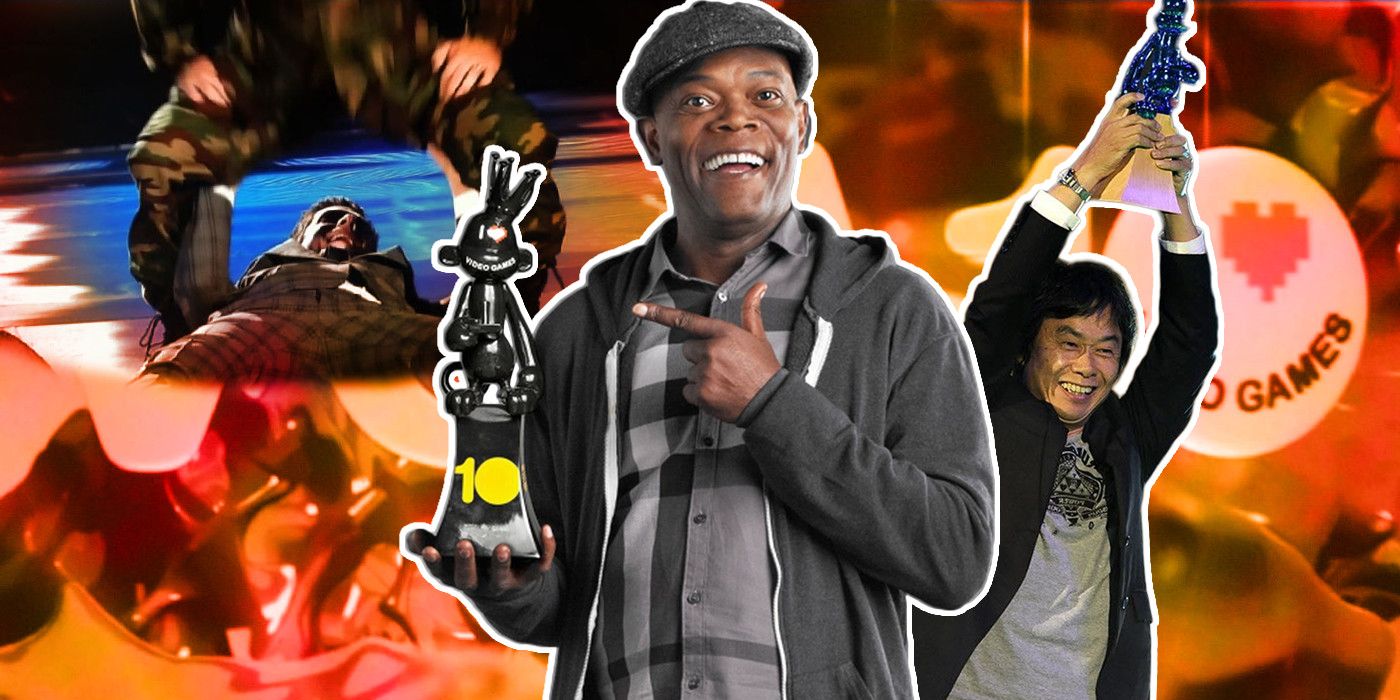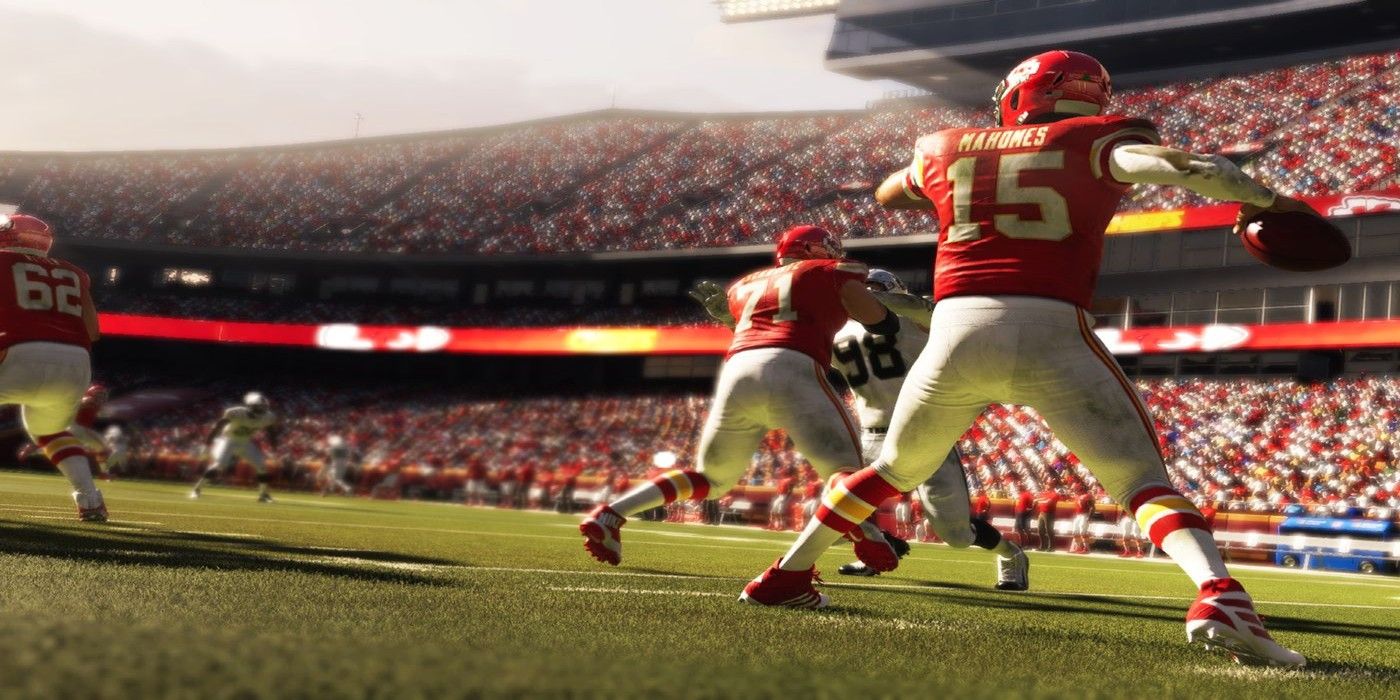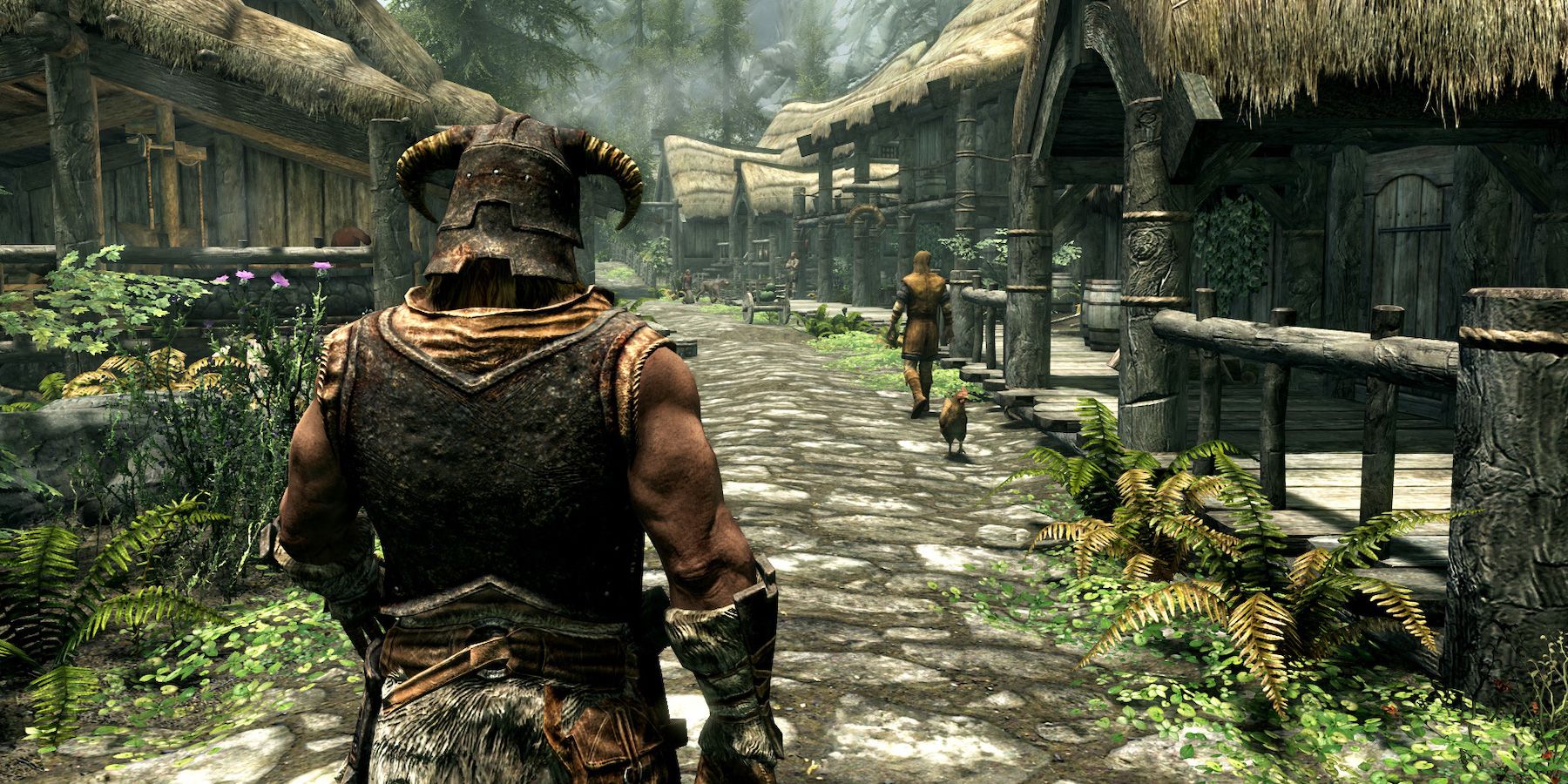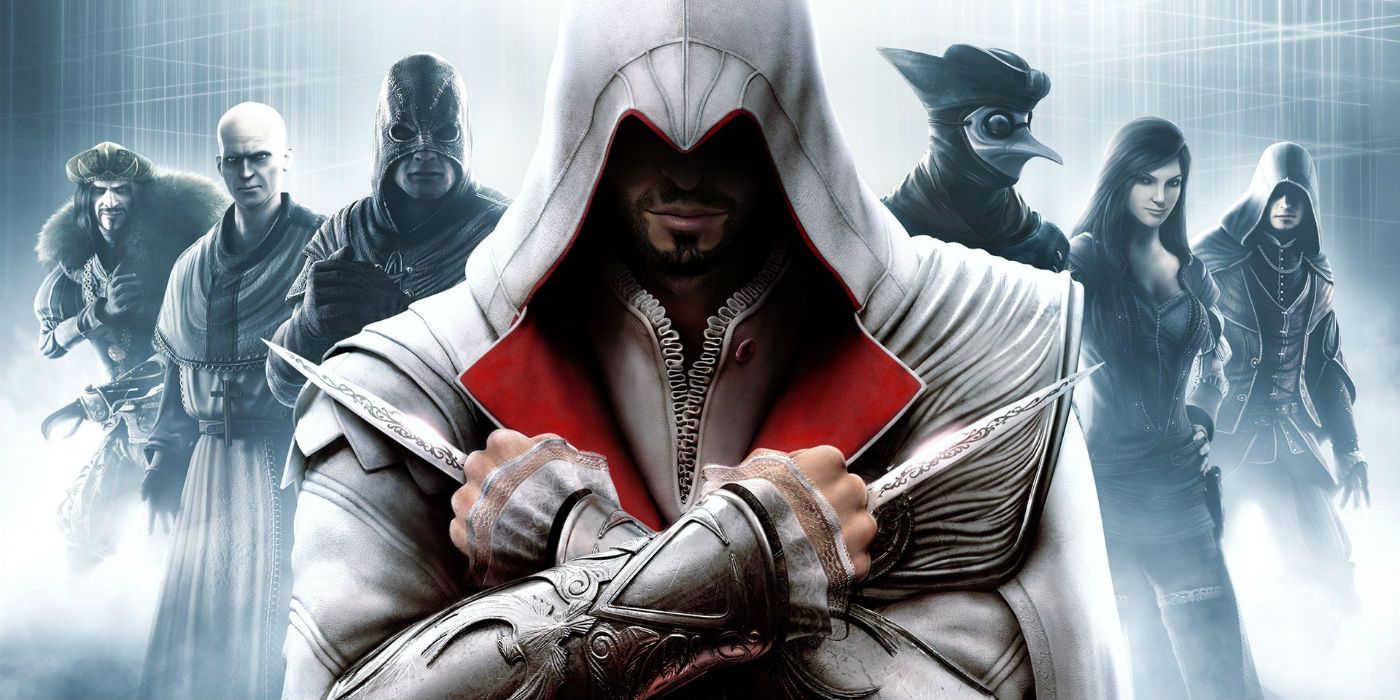Imagine if, during this year's Video Game Awards, a man ran out during someone's acceptance speech for Game of the Year and started tea-bagging them because they were taking too long with their speech. This would be a complete disaster and totally unthinkable to see happen on something as important as an awards show. Well, that's exactly what happened at the 2011 Spike Video Game Awards.
Spike TV produced Video Game Awards ran from 2003 to 2013 and perfectly encapsulated the disconnect between popular culture and gaming culture from the 2000s. People didn't always "get" video games and, to the show's credit, the Spike Video Game Awards tried to bridge that gap. The show frequently featured celebrity hosts, such as Samuel L. Jackson, that served as a way for the show to try and bring pop-culture and gaming together.
Take the 2003 Spike Video Game Awards, for example, which was the first time the event was held. The show had a clear objective of trying to connect gaming to anything popular in 2003, with professional wrestling and tons of rap artists featured on the show. Madden NFL 2004 won Game of the Year, possibly due to how sports games have a wide range of appeal, even outside of the typical gaming fanbase.
The 2004 show turned the mainstream appeal up to eleven with a show packed with stars. Tony Hawk, Samuel L. Jackson, Frankie Muniz and Vin Diesel are just some of the names that appeared during the show, most of which were there to accept awards. The show had a huge focus on musical acts that did end up drawing some interest from the non-gaming crowd but ended up alienating many gamers who wanted to see the people behind some of their favorite games receive recognition.
2004 also saw the start of two oddly worded categories, called "Best Performance by a Human Male" and "Best Performance by a Human Female." It's not hard to guess that these categories were meant to recognize voice acting talent in video games, but it's still baffling that they felt the need to use the word "human." Perhaps it was there to poke fun at the virtual nature of video games, but even so, it was like the people behind Spike were expecting computers to take over video game voice acting.
It was clear that publishers and developers valued the mainstream eyes that were on the Spike VGAs, as many high-profile titles were first announced during these shows. The Elder Scrolls V: Skyrim, Mass Effect 3, Mortal Kombat 9 and Portal 2 were among the games announced at the 2010 show. 2010's show also continued the trend of strange award categories, with "Best Dressed Assassin" being won by Ezio Auditore da Firenze of Assasins' Creed fame.
The Spike VGAs had their own video game hall of fame, though this would only be referenced once. During the 2011 VGAs, The Legend of Zelda series was inducted into the said hall of fame, though with the event seeing a rebranding two years later, no further games were ever inducted. The 2011 show also featured a man in a generic military outfit running on stage and tea-bagging award recipients who went on too long with their speeches, which often happened in the middle of directors giving their development staff much-deserved praise.
2011 sums up the Spike VGAs fairly well. Even though there were some clear efforts to try and recognize the passion that goes into the video game industry, it'd often be interrupted by lack-luster attempts to appeal to a wide demographic. Many reviewers in the gaming industry found the show to be an embarrassment for gaming as a whole, though it is worth wondering if they did play a part in shrinking that gap between the mainstream media and gaming.
Luckily, the Spike Video Game Awards would make a turn for the better, losing Spike Network as a producer in the process. The show would become the now incredibly respected Game Awards, in part due to Geoff Keighley taking over during the transition away from Spike. Keighley used his journalism connections and a reported $1 million to fund the 2013 rebrand.
Choosing to have the award show live-streamed allowed for the show to reach a much larger audience than it did through Spike. There's also been a heavy focus on fan-feedback to improve The Game Awards. With far less celebrity involvement, categories that honor the industry and a total lack of tea-baggers, the Game Awards have come a long way into being a true celebration of gaming.




